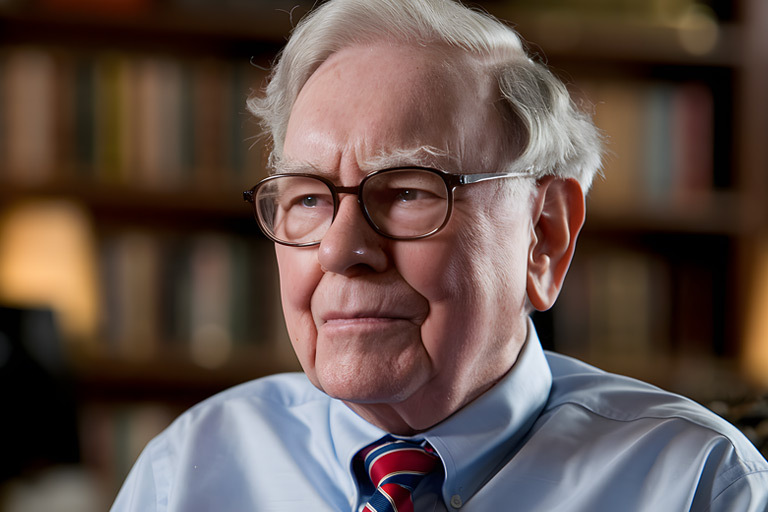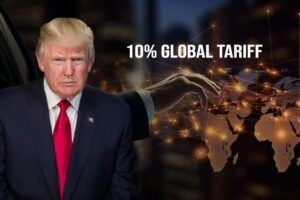While global markets reeled from a dramatic downturn sparked by sweeping US tariffs, Warren Buffett’s investment approach once again proved resilient. As over $5 trillion was wiped out from global equities following former President Donald Trump’s tariff announcement targeting 184 nations, Buffett’s fortune surged—adding approximately $13 billion to his net worth.
Despite the carnage, Buffett’s Berkshire Hathaway remained in positive territory, underscoring the billionaire investor’s long-standing emphasis on capital preservation. His strategy helped shield his holdings from one of the most volatile periods on Wall Street since the onset of the COVID-19 pandemic in March 2020.
Steady Wealth Growth Amid Market Decline
Buffett’s net worth has climbed to $155 billion in 2024, marking an increase of $12.7 billion year-to-date. This comes at a time when other top billionaires have seen significant losses. Elon Musk, for instance, saw his net worth decline by $130 billion, settling at $302 billion, while Jeff Bezos experienced a $45.2 billion drop, bringing his total wealth to $193 billion.
In a particularly severe blow to the wealthy elite, the Bloomberg Billionaires Index recorded a $208 billion loss among the 500 richest individuals in a single day—the fourth-largest daily drop in the index’s history.
Defensive Positioning and Strategic Asset Allocation
Buffett’s cautious stance in the face of soaring market valuations played a key role in insulating his portfolio. Throughout 2024, Berkshire Hathaway strategically sold $134 billion in equities, choosing instead to bolster its cash reserves. By year-end, the conglomerate was holding an unprecedented $334 billion in cash.
Much of this capital was directed into short-term US Treasury bills, instruments known for their safety and liquidity. These investments have not only safeguarded capital during recent volatility but also generated solid returns amid rising yields, benefiting Berkshire shareholders in the process.
Buffett, in his annual shareholder communication earlier this year, emphasized the foresight behind this move, noting that the predictable increase in investment income—driven by higher yields on Treasury securities—had significantly boosted returns.
Apple Stock Sale Adds to Gains
Another factor contributing to Berkshire Hathaway’s resilience was the timely reduction of its Apple holdings. The firm sold roughly two-thirds of its Apple stock over the first three quarters of the previous year, when the stock was still experiencing upward momentum. Although Apple remains the largest individual stock holding for Berkshire, the bulk of the position had already been liquidated before the recent market collapse.
Since peaking in December, Apple’s stock has declined by 28 percent. With escalating tariffs affecting US-China trade, companies with manufacturing operations in China—like Apple—are expected to face further headwinds.
Tariffs Trigger Global Sell-Off
The sharp decline in markets followed Trump’s announcement of a 10 percent baseline tariff on all nations trading with the US, with harsher penalties for countries deemed to have unfair trade practices. China has been hit with a 34 percent tariff, while India faces 26 percent. The news sent shockwaves through the financial system, with the S&P 500 dropping 10 percent and both the Nasdaq and Russell 2000 entering bear market territory.
Over just two trading days, global investors have seen $5 trillion in market value evaporate, triggering widespread fears of an imminent recession.
As panic ripples through global financial markets, Buffett’s conservative and calculated investment approach continues to stand as a benchmark of stability, reinforcing his status as one of the most disciplined capital allocators of modern times.







